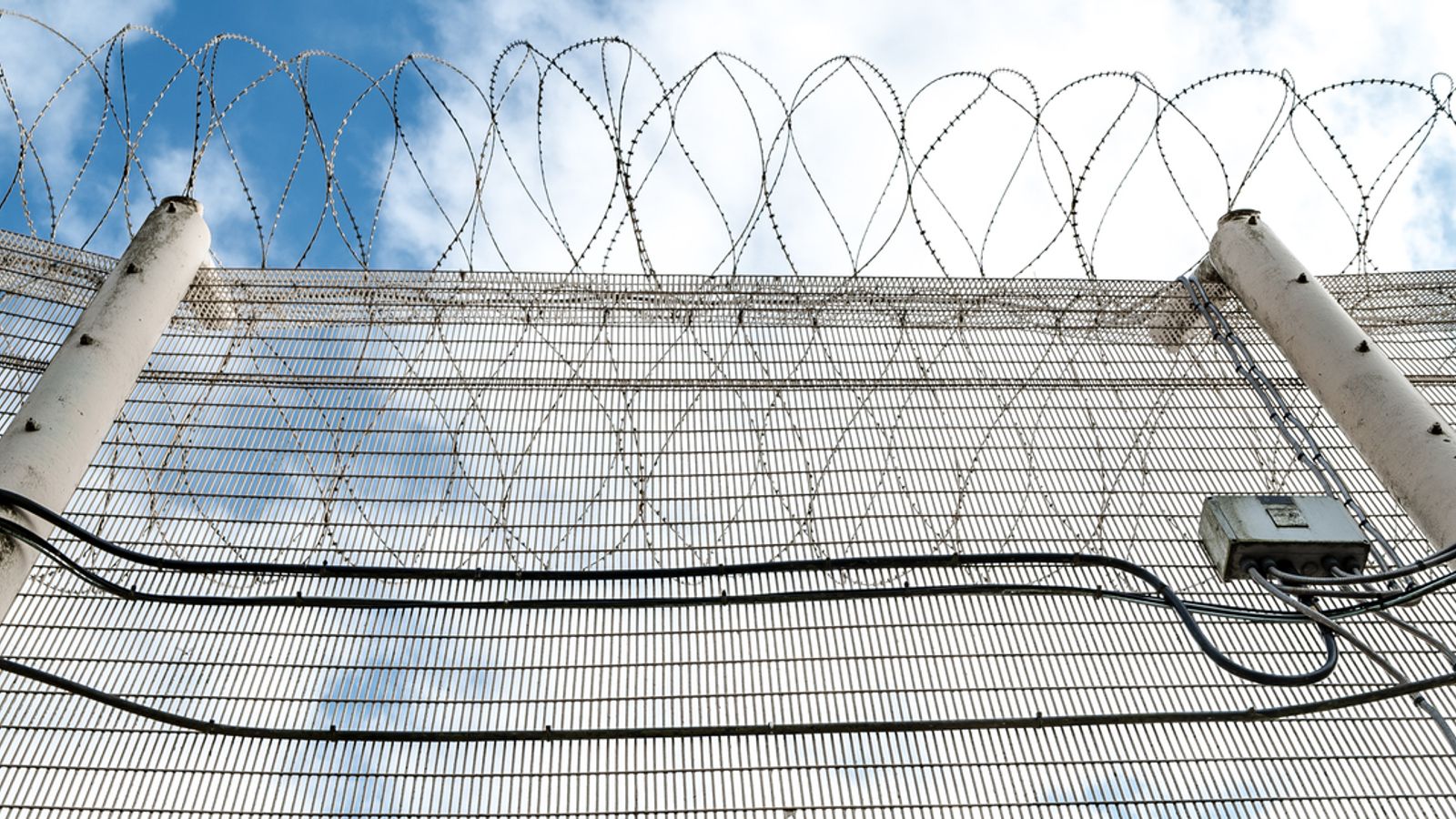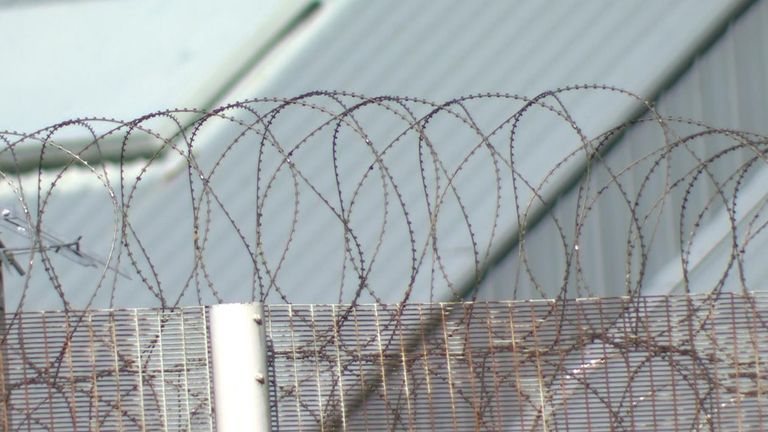Thousands of prisoners languishing in prison indefinitely deserve “justice” and should be resentenced as a priority, the UN’s leading torture expert has said.
Speaking to Sky News, Alice Jill Edwards described sentences of imprisonment for public protection (IPP) as a “horrific indictment of the British justice system”.
PM suffers post-election poll slump – politics latest
IPP was introduced by Labour in 2005, allowing courts to impose prison sentences with no release date.
They were abolished by the coalition government in 2012, but the change was not applied retrospectively, meaning approximately 2,852 prisoners remain behind bars – including 1,227 who have never been released.
Ms Edwards, the UN’s special rapporteur on torture and other cruel, inhuman or degrading treatment or punishment, called upon the new government to commit to a full or partial resentencing exercise for those still in jail.
It comes as Sir Keir Starmer’s administration grapples with an overcrowding crisis, forcing the activation of an emergency measure allowing defendants to be held in police cells for longer.
Ms Edwards said it was “unfortunate” recent measures taken – including letting prisoners out early – did not include those serving an IPP, which she has previously described as a form of “psychological torture”.
‘The only thing to satisfy the public’
Ms Edwards, who has written to the government over the issue, said she hoped Labour’s focus on reducing the prison population would mean there would be “changes substantive enough” to bring the IPP scandal to an end.
IPP was intended for violent and sexual offenders who posed a significant risk of serious harm to the public but whose crimes did not warrant a life term.
Although the aim was public protection, concerns grew that IPP sentences were being applied too broadly and catching more minor offenders, who often ended up serving years beyond the time they were supposed to serve.
Anyone on an IPP can only be released once they have served their tariff and the Parole Board has given its approval.
Ms Edwards said “the only thing that is going to satisfy the public” while also respecting the rights of IPP prisoners is undergoing “full or partial resentencing”.
The main argument used by the previous Conservative government against a resentencing exercise was it would put public protection at risk – but Ms Edwards said the government could “stagger” the task and that those indicted for the most serious crimes would not be released.
Read more:
Sister’s plea to prisons minister over brother’s jail sentence
Ministers using ‘misleading’ claims to justify indefinite detention
‘A terrible scandal’
Since 2005, 90 prisoners have taken their own lives in prison while serving an IPP sentence.
Ms Edwards also highlighted cases whereby those convicted of minor crimes, including stealing a mobile phone, remained held in prison more than a decade later.
She said such cases continuing years after the sentences were disbanded is a “terrible scandal” that had people “questioning the justice system”.
“It leads to people losing faith in the British justice system, and that is very worrying,” she warned.
“I would be the first to congratulate the government if they took swift action and delivered justice for these individuals.”
A Ministry of Justice spokesperson said secretary of state Shabana Mahmood was “committed to working with organisations and campaign groups to ensure the appropriate course of action is taken to support those still serving rightfully abolished IPP sentences”.
“We will carefully consider the points raised and respond in full in due course,” they added.
Anyone feeling emotionally distressed or suicidal can call Samaritans for help on 116 123 or email jo@samaritans.org in the UK. In the US, call the Samaritans branch in your area or 1 (800) 273-TALK


